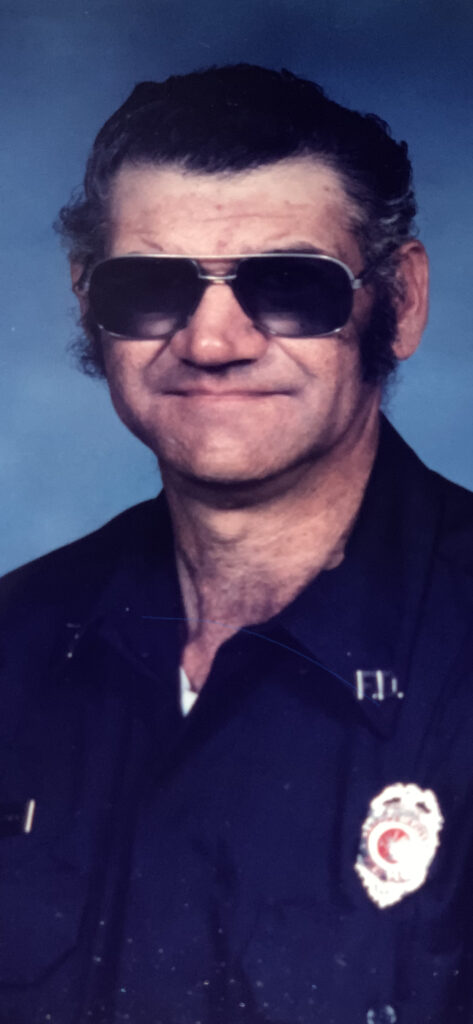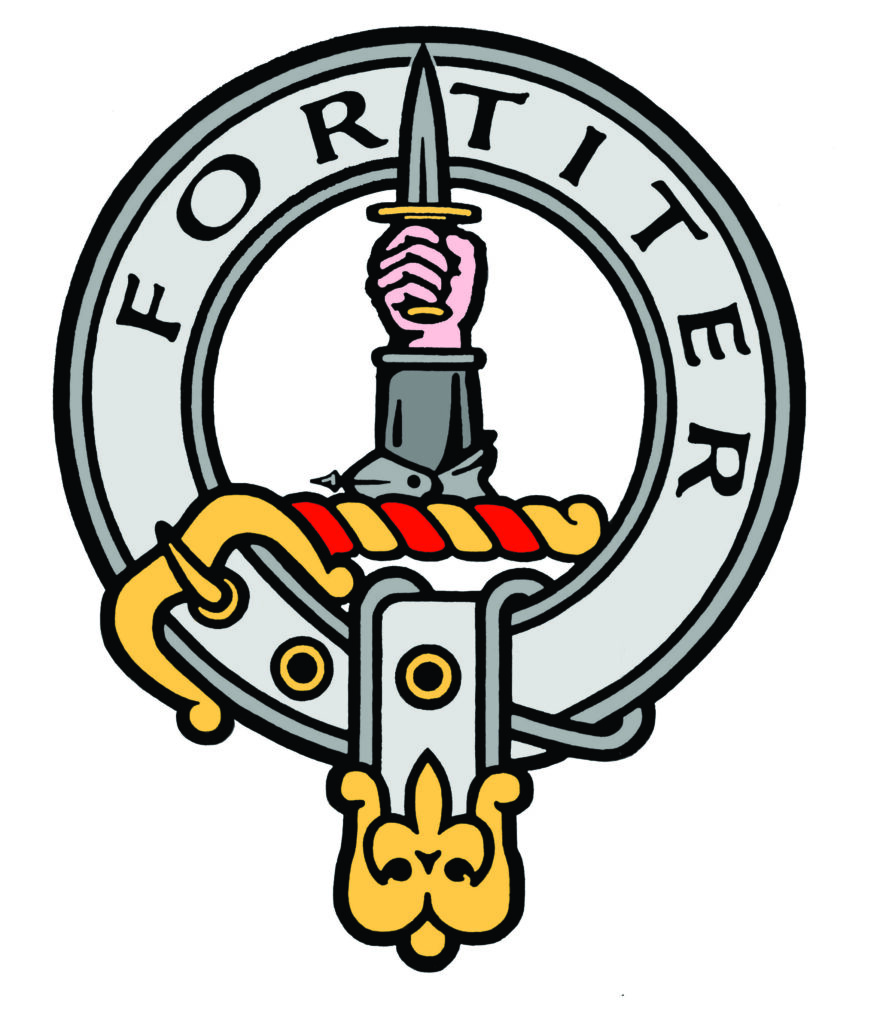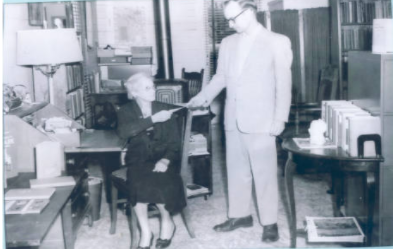by Debra Vernon
Today, it seems as if there is a Dollar General on every corner. Little islands of retail pop up in the most rural of areas. It’s a place where you can run in and grab most necessities, and then quickly beat a retreat to the car and on back to your house. But in the not too distant past, the local “country store” was a big part of any community, and it was no different at Browns Crossroads.
The neighborhood of Browns Crossroads still exists among the gently rolling foothills of eastern Randolph County. It is the type of place where anyone that lives within a 5-mile radius is considered your neighbor, and that’s a good thing. Back in the day, there at the crossroads was Langley’s store, affectionately known by anyone in the neighborhood simply as “Miss Lou’s”.
This was a place which was not designed for the quick stop. This was a place where you were encouraged to stick around and find out the comings and goings of your neighbors. The parking lot was composed of a little bit of gravel and a whole lot of bottle caps, which gave a distinct sound when you walked on them. A Sunbeam screen door would slam shut behind you as you entered the sanctuary of the neighborhood retail chapel. A long counter that ran along the back, with an assortment of items for display: ‘nab crackers, Vienna sausages, potted meat, saltine crackers, sardines and for the high-end diners, cans of beanie weenies. The coke machine was the chest type, and you could reach in and find the coldest coca cola ever, chilled just right and waiting for you to add salted peanuts. Coble Dairy ice cream cups with the little wooden spoons occupied my childhood desires while there, but they were not housed in a fancy freezer like frozen items are nowadays. Nope, there was an old white Kelvinator fridge that sat back in the corner, where milk and cheese occupied the cooling section, and ice cream cups and sandwiches occupied the freezer portion. Loaves of bread sat out on a metal rack, and a few cookies and sweet things occupied another shelf. There was not a lot of variety, and that was okay, as it was a simpler time and a simpler place, when just the basics was quite enough. Red Man chewing tobacco, as well as Camels with no filter were available by the pack. Chatham Dog Food was stacked in 50-lb bags over against the wall, and I spent many Saturday nights sitting on those, watching my mom and dad and our neighbors playing games of Canasta or Rook at the table in the corner. I can see it so clearly in my mind’s eye right now.
Miss Lou was queen in that realm and ruled it accordingly. I do not believe I ever saw her in anything but her “house dress”, standing behind the counter while ringing up purchases on that big old metal cash register with the bell on it, and dispensing the latest news of the neighborhood. She was a fount of knowledge; and knew everyone near and far. It was in this small space I learned some valuable life lessons.
If someone in the community was sick, the ladies would map out who would provide meals during the week. On your assigned day, you cooked up a big meal and took it to them. And it was an entire meal, complete with meat, a few vegetables, homemade biscuits, sweet tea and a dessert of some kind. And it was all made from scratch. None of that store-bought stuff. You marked your dishes with your initials, and you were sure them get them back. If it was an extended illness, house cleaning, as well as clothes washing, and ironing would be taken care of. Men folk would take care of items such as planting or harvesting (depending on the time of the year), moving stock from one pasture to the next, or gathering/splitting wood.
If the doors to the church were open, you were there. You served whenever and wherever needed and did so with a glad heart. Bible school was held each summer, revival services in the spring and fall, and the Christmas program with the kids was always a big hit. You may not attend the same churches as some of your neighbors, but you supported their fund-raising dinners and gave generously to their projects. It was just the Christian thing to do. Some of those dinners were held at the Grange Hall across from Miss Lou’s store. Fried chicken, green beans seasoned with fatback, homemade biscuits, sweet tea and some of the best desserts to ever hit your taste buds flourished at those dinners.
You went to school with your friends at one school for all grades, and you were subject to the expectations of your teachers and the principal while there. If you were not on your best behavior, discipline would be dispensed quickly and efficiently at school, and a note sent home to ensure another dose would be administered by mom or dad. Even if you were not on the school sports team, you were still at any of the games you could get to. School spirit was infused into everything you did, and it was contagious! The smell of freshly popped popcorn still takes me back to the gymnasium at Ramseur Elementary school, and I am so tickled the gym I remember is still there and in use!
You also learned to respect your elders. This was not just the older folk in the family, but anyone in the community older than you. You respectfully listened to what they had to say and did not interrupt or argue. And for those who were authority figures, such as police officers and firemen, a special measure of respect was due, as you knew they put themselves in harms way to protect and serve others.
This was also during the time of the draft, so every red-blooded and physically able young man gave a minimum of 2-4 years of service to the armed forces. And every mother gave a piece of her heart. Because of this, it was instilled in you at a young age to stand for the national anthem with your hand over your heart, say the pledge of allegiance every day in the classroom while facing Old Glory, and always put God and country first. It was the least you could do to signify how much you loved your neighbor and your nation.
Today, Miss Lou’s store no longer stands at Browns Crossroads, and the Grange building is long gone too. Highway 64 is no longer a two-lane highway, but a divided highway with a convoluted intersection which now requires a trip either east or west just to go straight across (government intervention at its finest). But you know what? Even though time has marched on, this neighborhood still embraces the lessons I learned while sitting atop the dog food sacks. Taking care of your neighbor, being at church worshipping God, doing your best in school, respecting your elders and showing compassion and concern for all people. All of that still runs deep here. So, I would say Miss Lou’s store provided the basics in more ways than one. And no Dollar General can improve upon that.




